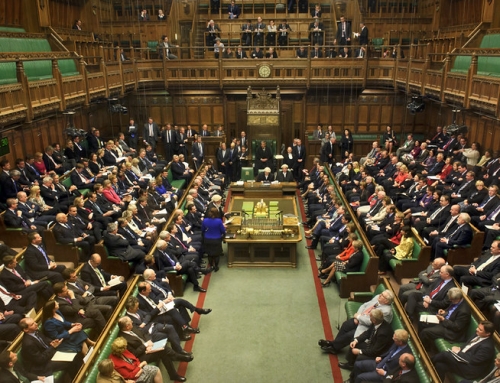Click on the image above to view the flyer about the book purchase from here
A Generation of Radical Change: stories from the Field edited by Richard Pring and Martin Roberts Publication date 15 December 2015
Newsworthy extracts from the chapters commissioned by Martin Roberts
Chapter 2 Kenneth Baker: the Revolution Begins
Since the introduction of the National Curriculum, the DfE has promoted ‘how to teach’ strategies, especially for primary teachers and Ofsted went through a phase of encouraging a particular Ofsted approach to lesson planning. Interestingly, the creator of the National Curriculum does not approve:
“I never attempted to tell teachers how to teach. There was sufficient choice within the national curriculum for schools to be as varied and creative as they wished to be.”
He is also puzzled by the present inertia in the DfE when it comes to vocational educational initiatives.
“One of the extraordinary features of the UTC movement is that it has been left to a charity, the Baker Dearing Educational Trust, to be the main promoter of the UTCs… If it had been left to the DfE to promote UTCs I do not believe that by now as many as 60 would have been approved.”
Chapter 3 Wendy Scott: The Early Years
Wendy Scott is one of our leading practitioners in early years’ education
She points out how out of step we are with European best practice.
Most European countries which “have a coherent early years curriculum to the age of six or seven, offered in one place and staffed by professionals well-qualified in early years pedagogy.”
She deplores the top-down emphasis on literacy and numeracy
“The prime area of learning, namely personal, social and emotional development, communication and language, and physical development are being side-lined in a push to academic achievement. This is undesirable at all ages, but disastrous in the early years.”
Working for a time within the DfE has made her particularly critical of government attitudes to early years’ education
The current political climate and blame culture, the deliberate rejection of expert advice coupled with unjustifiable insults to specialists who have dedicated their professional lives to education, and the highly selective use of evidence, is demoralising staff and harming children’s life chances.”
Chapter 5 Martin Roberts: Secondary Education in Oxfordshire
Martin Roberts was one of Oxfordshire’s most successful head teachers.He became a head in 1981 so experienced directly the impact of the ‘revolution’ on his work. Since then he has helped to provide, for more than a decade, CPD for secondary teachers.
He is sure that:
A succession of Westminster initiatives have left teachers reeling. Whatever Michael Gove’s virtues, his whirlwind approach to policy-making without regard to teacher opinion took ministerial interference to a new extreme.
Ofsted has for most teachers become an ogre distorting the activities of too many schools.
The more professional freedom teachers have, both in relation to their pupils and assisting in the direction their school is travelling, more often than not their pupils will benefit.
As a leading member of the Historical Association in 1988-9 he was deeply involved in the controversy about the details of History in the National Curriculum when the Conservative right took on ‘trendy’ history teachers
This episode demonstrated a number of things – the lack of a coherent philosophy underpinning the National Curriculum; the danger of partisan politicians interfering with curricular details; the malfunctioning of the Department for Education; the low esteem in which teachers were held by the Conservative administration; the role of the press in unhelpfully simplifying and sensationalising complex issues.”
There was a rerun of this controversy with Michael Gove versus the history teachers in 2013.
Chapter 11 Pat O’Shea: Accountability and Inspection
Pat O’Shea was a head teacher, senior LEA adviser and Ofsted Inspector.
Her first experiences of Ofsted were favourable.
c.2005 I felt that Ofsted provided a broadly accepted national standard of what good practice meant….The motivation of many inspectors, mine included ,was to help schools improve by providing an external focused view of what would make the school even better…
However Ofsted changed as did her attitude to it.
By 2014 We were to give only judgements with no advice to teachers in lesson feedback, or discussion of possible strategies to improve the school further with school leaders. The territory held by the political agenda was increasing. We caused stress and distress to teachers and heads, who were under huge pressure. Fear does not improve schools for young people
Chapter 12 Tim Brighouse: From Optimism and Trust to Markets and Managerialism
Sir Tim Brighouse has been one of the most influential educationists in recent years, CEO of Birmingham, government adviser and then leader of the London Challenge. He believes that the present age of ‘Markets and Managerialism’ must give way to one of ‘Partnership and Intelligent Accountability’ which the success of the London Challenge justifies.
In London we were allowed to try a distinctive set of practices which were tailored to London’s needs but within national educational policies. What we tried to encourage was professional trust with schools learning from each other, backed by a database that enabled them to see in forensic detail what other schools were doing. We talked the language of partnership.
Chapter 13 Margaret Maden: Schools a shifting landscape
Margaret Maden was a school principal, CEO, Professor of Education and researcher in comparative education.
Her career and research within the OECD, particularly in France and Germany, convinces her of the importance of a middle tier in national education systems, especially in England where successive governments have fatally undermined local authorities:
It was clear that greater ‘school autonomy’ was being thought of elsewhere but it was seen as a high risk strategy if taken too far, especially if a school’s improvement halted or stuttered. Experience and expertise should be available locally, both to identify emerging problems and to advise and know where relevant support is to be found. Whether this person is in a local authority as currently organised is arguable, but there certainly needs to be a statutory body employing such advisers.
M.R. 22 November 2015





